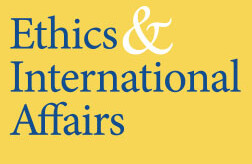For over a year, the Bush administration has warned that Iraq’s possession of weapons of mass destruction poses a serious threat to global security. Moreover, the administration has invoked this threat to justify a preemptive military strike against Iraq. Once confined to strategic and international legal debates, preemptive war and its cousin, preventive war, have subsequently figured prominently in the discussions about the war on terrorism and the proposed military action against Iraq.
The Bush administration has supported the idea of preemptive military action in its National Security Strategy and in various international and national forums. These justifications for preemptive military action have drawn heavily on often-conflated discourses of self-defense, terrorism, and humanitarianism. These discourses, however, have distinct heritages and rationales. And while combining different kinds of arguments is intended to make the case for preemptive use of force overwhelmingly persuasive, the wavering of support both nationally and internationally suggests that combining these distinct rationales may have led to confusion rather than illumination.
The issue of what constitutes preemption and prevention bears upon what is perhaps the most vital question facing those concerned with ethics in international relations: whether a country is defending itself or committing aggression. While this question turns out to be more complicated than it may at first appear, particularly when judgments must be made in the midst of tension and insecurity, the contributions to this Roundtable suggest that it may indeed be possible to draw a distinction between the two.


